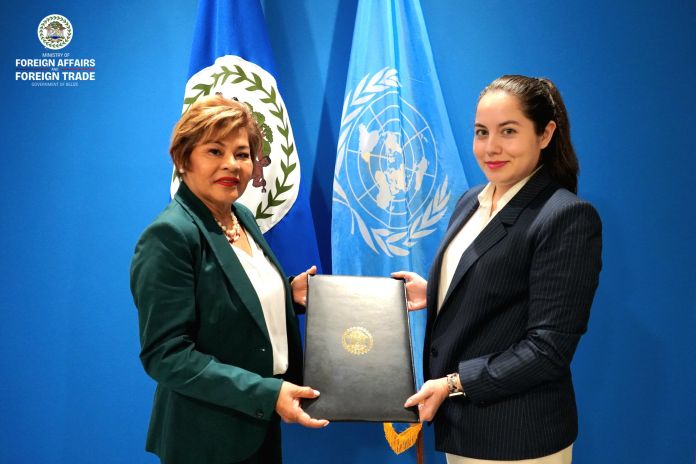BELMOPAN, Belize – Belize signed a letter requesting an extension for the Country Programme Framework (CPF) with the International Atomic Energy Agency (IAEA). The extended CPF will allow Belize and the IAEA to continue collaborating through the IAEA Technical Cooperation Programme until November 2026.
The extension highlights the strategic importance of the CPF mid-term review process to identify priority areas where the transfer of nuclear technology and technical cooperation resources will be directed to support national development goals in the areas of radiation safety, food and agriculture, human health, water and environment, and energy in Belize.
The ministry of foreign affairs and foreign trade spearheads the CPF, with support from key stakeholders such as the department of environment, ministry of health and wellness, ministry of agriculture, food security and enterprise, the Belize agricultural health authority, and the University of Belize.
Signing the CPF extension on behalf of the government of Belize was H.E. Amalia Mai, chief executive officer in the ministry of foreign affairs and foreign trade. Along with Carla Cueva, programme management officer for Belize in the Division for Latin America and the Caribbean.
The Department of Technical Cooperation represented the IAEA.





